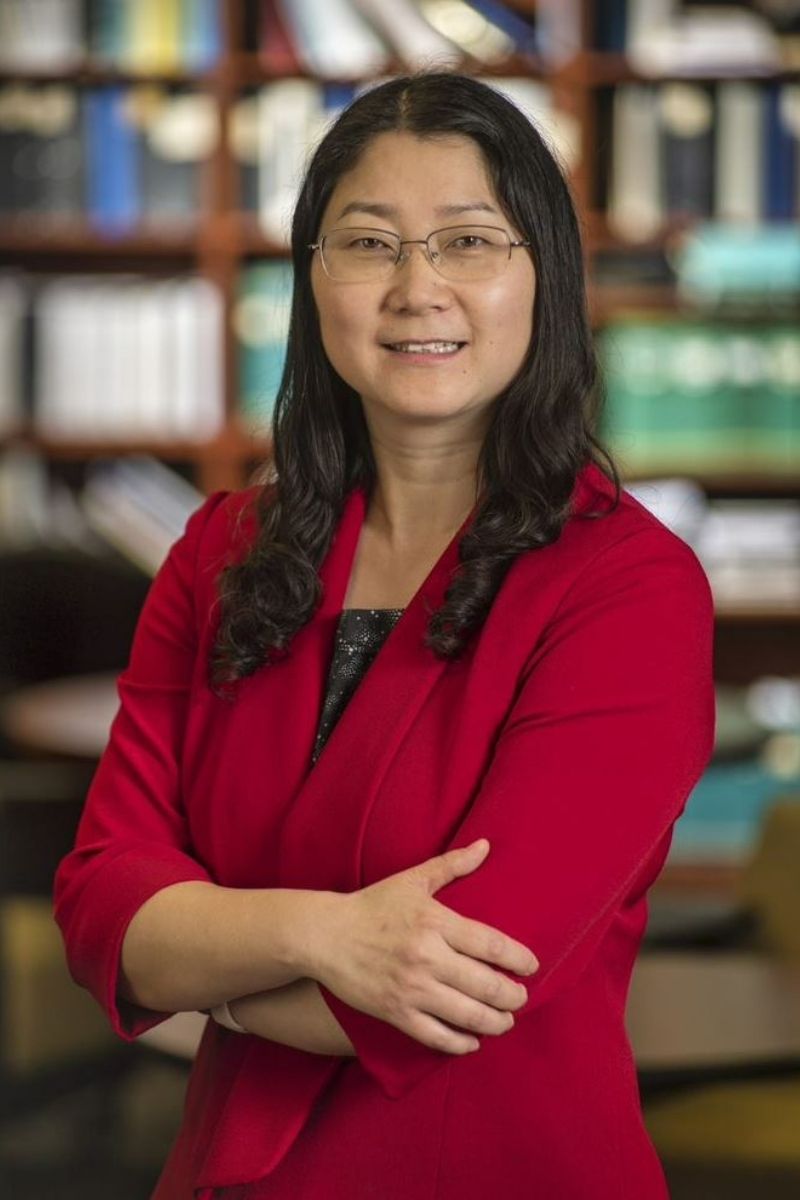Physics professor named leader of NASA mission

NASA has selected a space physicist from The University of Texas at Arlington to play a leading role in a new project that will change our understanding of Earth’s upper atmosphere.
The Geospace Dynamics Constellation (GDC) mission will utilize satellites to study Earth’s upper atmosphere and provide the first direct global measurements of the complex and dynamic boundary between it and space, called the ionosphere-thermosphere (I-T) system.
NASA named Yue Deng, UTA distinguished professor of physics, as one of three GDC Interdisciplinary Scientists (IDS) heading the mission, along with Rebecca Bishop, principal scientist at The Aerospace Corporation, and Jeffrey Thayer, professor of aerospace engineering sciences at the University of Colorado.
Deng will lead a team that includes Daniel Welling, UTA assistant professor of physics; Mingwu Jin, UTA associate professor of physics; Cheng Sheng, UTA research engineer scientist in Deng’s lab; Christine Gabrielse, research scientist at The Aerospace Corporation; Sebastijan Mrak, research associate at the University of Colorado; Shun-Rong Zhang, research scientist at MIT; and Simon Wing, physicist at Johns Hopkins University’s Applied Physics Laboratory.
The GDC mission will advance scientists’ understanding of the structure and behavior of the I-T system. Specifically, the mission will reveal new insights into how the I-T responds to energy input from the sun and space environment above and the lower atmosphere below, and how it internally redistributes this energy on a global basis, according to NASA.
The processes and dynamics active in the I-T region are involved in many of the space weather effects experienced on Earth, such as disrupted communications and navigation signals, satellite orbit disruptions and some power outages.
“We are very excited at the opportunity to serve the GDC mission,” Deng said. “The GDC mission will provide an unprecedented opportunity to fill a critical science gap about multi-scale I-T coupling and will create a giant leap forward in specification of the energy and momentum deposition and in understanding the disturbances in the I-T system.”
The level of detail and resolution obtained through the mission will provide a better understanding of the space environment surrounding Earth and will allow new insights into the fundamental dynamics of planetary atmospheres within the solar system and beyond.
NASA has stated an intention to select the rest of the science team and the instruments that will fly on the GDC spacecraft in early 2022.
“This is a tremendous honor for Dr. Deng and her colleagues here at UTA,” said Alex Weiss, professor and chair of the UTA Department of Physics. “To be included in a leadership role of a major NASA project speaks volumes about the quality of work being done by Dr. Deng and all the faculty involved in space weather research here at UTA.”
Deng has more than a decade of experience in space physics research, including leadership roles in national, collaborative projects. Last year, Deng, Welling and Sheng received a $652,000 grant from NASA through its Heliophysics Living with a Star program to study the impact of space weather on Earth, particularly how solar-induced phenomena affect electrical power grids. The goal of the project is to use numerical computer models to better understand how space weather affects changes in Earth's ground magnetic field disturbance and geomagnetically induced current.
Deng is also leading a Multidisciplinary University Research Initiative project to develop next-generation simulation capability in I-T coupling at multiple scales for environmental specification and prediction. The project, which involves seven universities with UTA as the lead institution, is funded by a $7.3 million grant from the U.S. Department of Defense and a $1.5 million supplemental grant received by Deng in 2019.
Deng came to UTA in 2009 and received the College of Science Research Excellence Award in 2016, the UTA Award for Outstanding Research Achievement or Creative Accomplishment in 2017, the UTA Distinguished Record of Research Award in 2019, and induction to the UTA Academy of Distinguished Scholars in 2020.
- Written by Greg Pederson, College of Science